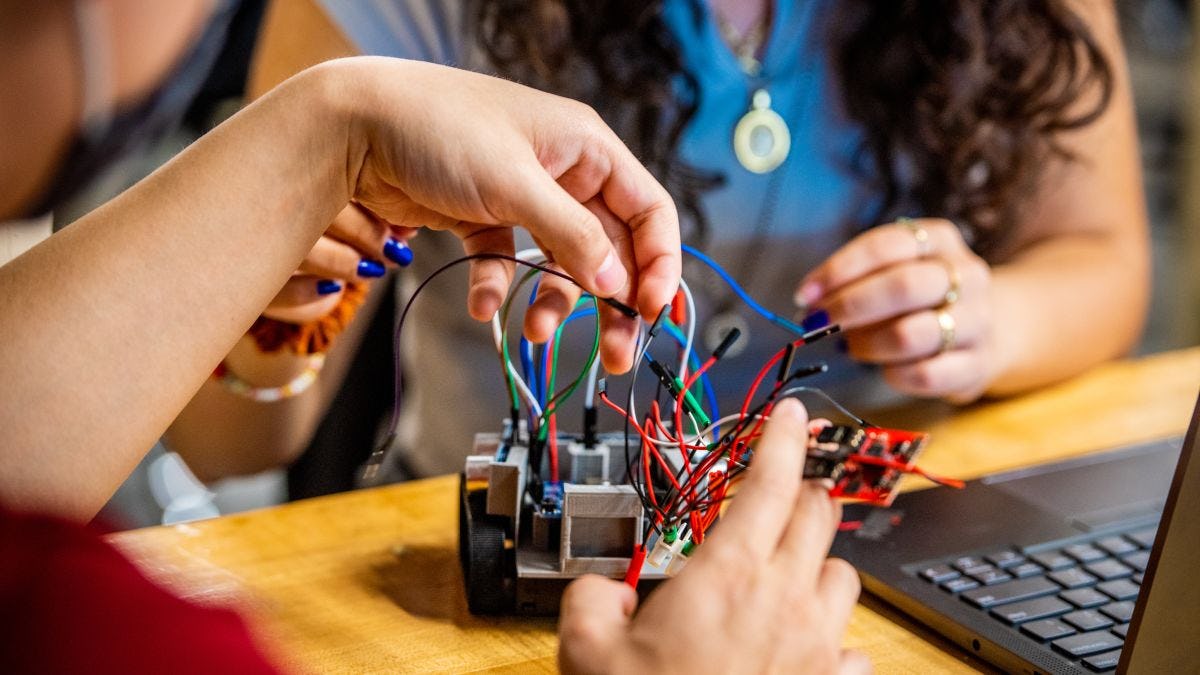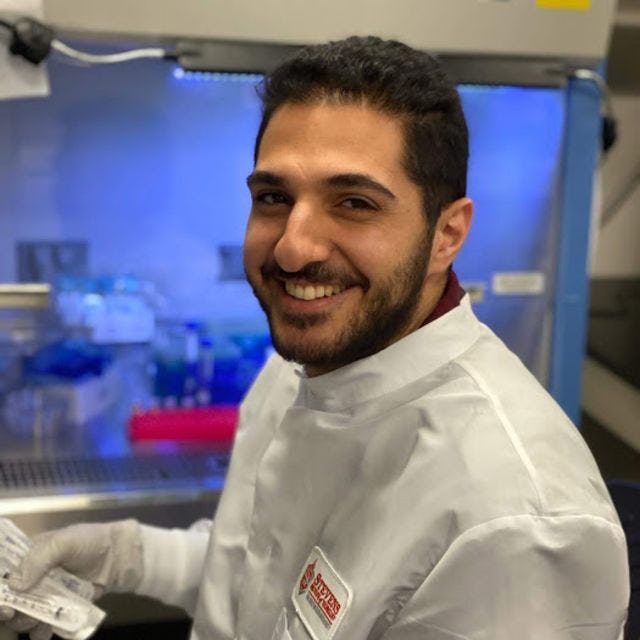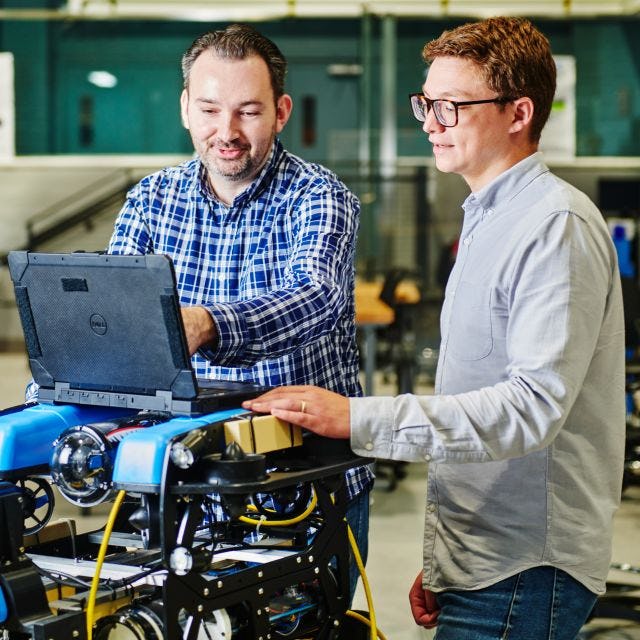
Mechanical Engineering Doctoral Program
Gain industry-leading expertise in robotics, bioengineering, nanomaterials, sustainable energy systems and more with a Ph.D. from Stevens.
The oldest mechanical engineering degree-granting institution in the country Stevens continues to emphasize technological innovation as a pillar in its curriculum. As a Ph.D. student, you’ll build quality academic credentials and contribute to major engineering advances while working alongside nationally renowned faculty.
In Stevens’ cutting-edge labs and facilities, you’ll delve into advanced, experimental research in fluid, thermal, structural and materials engineering. You’ll graduate with a strong record of solving and managing advanced, multidisciplinary problems with roots in real-world engineering challenges.
The Department of Mechanical Engineering offers dynamic opportunities to explore leading-edge research within a close community of faculty mentors. You'll be able to study under a faculty mentor in the area that you find most exciting:
Propulsion
Thermal, Fluid, and Energy Systems
Robotics and Autonomous Systems
Biomechanics and Biomechatronics
Additive Manufacturing
The Stevens Advantage: Widen Your Career Options
Stevens’ location is ideal for doctoral students seeking to break into industry. Our proximity to both Manhattan and the New Jersey innovation corridor puts you near leading pharmaceutical corporations, medical device manufacturers, telecommunication facilities and energy-related firms who routinely recruit Stevens mechanical engineering graduates.
Learn more about what makes graduate education from Stevens a unique experience:
Graduate Cooperative Education Program: Available with two tracks, your co-op experience can serve as a starting point for a research project or augment your on-campus research with complimentary experience.
International Student Experience: Tap into our expanding worldwide network of research, academic and alumni partners and mentor with our expert faculty in a number of federally-designated STEM degree programs. Optional Practical Training (OPT) or Curricular Practical Training (CPT) is available to gain work experience in your major/field of study.
State-of-the-Art Research Labs and Facilities: Build, tinker and test your designs in Stevens' MakerCenter, Prototype and Object Fabrication Lab, or numerous other research facilities.
Research Opportunities: Renowned faculty, labs and research centers – as well as industry partnerships and funding from leading national agencies – support strategic and interdisciplinary research in engineering and science.
Assistantships and Fellowships: Stevens offers funding to select graduate students in the form of teaching assistantships, research assistantships and fellowships. Limited in number, these highly competitive opportunities are awarded to exceptional candidates based on merit.
Expanded Learning Options: The Schaefer School offers new opportunities for doctoral students to do coursework at universities in the New York City area – and around the world – through our growing list of academic partnerships with other prestigious universities. Learn more about our latest partnerships.
Hands-On Mechanical Engineering Research
At Stevens, you have the ability to join research groups with students at a variety of levels of experience, and outstanding faculty so you can learn cutting-edge technology as a team, just like in the real-world. In our state-of-the-art research labs and facilities, you'll have the opportunity to engage in experiential learning.
Program Admission Requirements
Who Should Apply?
We welcome applicants who hold a master’s degree in mechanical engineering, materials engineering, civil engineering, chemical engineering and biomedical engineering; possess a strong academic background; and have demonstrated an aptitude for advanced study and research.
Exceptionally well-qualified applicants who hold a bachelor’s degree in mechanical engineering or a related field may be considered for direct admission to the Ph.D. program.
Note that applicants who would like to be considered for assistantships or fellowships must apply by February 1 for consideration for the fall semester.
Requirements
Bachelor’s degree, with a minimum GPA of 3.5, from an accredited institution
Transcripts from all post-secondary institutions attended
Two letters of recommendation (academic or professional only; Select Ph.D. programs require a third letter of recommendation)
Statement of Purpose
$60 non-refundable Application Fee
Proof of English language proficiency
A competitive GRE or GMAT score (optional)
Resume/CV
Writing sample(s). All applicants are encouraged to submit a lab report (preferable) or paper that they wrote, individually, for an engineering course. Applicants who have published a journal article are also encouraged to submit a copy of their article.
For more complete details, visit our General Admissions Requirements page.
Curriculum Overview
View objectives, outcomes, and other Ph.D. curriculum details in the most recent academic catalog.
View Academic Catalog >
Each Ph.D. curriculum must also adhere to the institution wide standards listed in the doctoral handbook.
View Doctoral Handbook >
If you have existing graduate credits or experience in this area of study, contact [email protected] to discuss opportunities to include it in the curriculum.
Fellowships & Assistantships
Information about assistantships and fellowships can be found here.
STEM Designated Degree Programs
The four fields comprising STEM – science, technology, engineering and mathematics – offer a wide variety of professions that are classified as some of the highest-growing and highest-paying jobs right now and in the future.
And for international students, the demand for STEM-related professionals in the United States can open the door for an extended stay.
An ever-growing list of eligible programs across all levels is available here.
A Tech Forward Education
Mechanical Engineering Ph.D. Facts & Statistics
Related Programs
Robotics Doctoral Program
Earn your robotics Ph.D. and gain in-demand skills that can make a global impact while learning from top robotics experts.
Electrical Engineering Doctoral Program
Enhance your engineering career with the advanced technical and leadership skills you’ll gain in Stevens’ electrical engineering Ph.D. program.
Ph.D. in Computer Engineering | Stevens Institute of Technology
Gain the in-demand computer engineering skills you need to lead in rapidly evolving fields like cybersecurity, the Internet of Things (IoT), machine learning, and artificial intelligence (AI).
Biomedical Engineering Doctoral Program
Gain the advanced research skills and hands-on experience you need to engineer innovative medical solutions in the biomedical engineering Ph.D. program.





